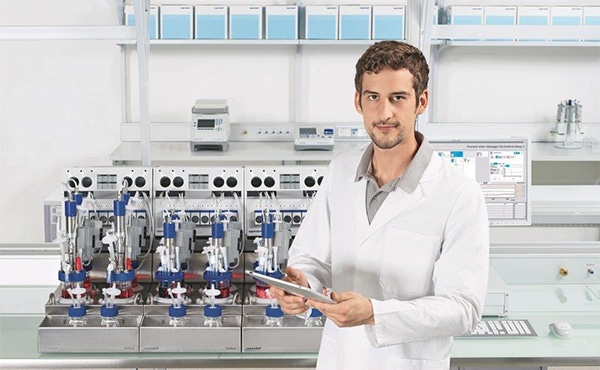Voices of Biotech
Podcast: MilliporeSigma says education vital to creating unbreakable chain for sustainability
MilliporeSigma discusses the importance of people, education, and the benefits of embracing discomfort to bolster sustainability efforts.
October 9, 2018

Sponsored Content
Three-dimensional (3D) cell aggregates are of great interest for many applications, including disease modeling, drug toxicity assessment, and manufacturing of stem cell-based products. Stirred-tank bioreactors are promising culture systems for 3D cell aggregates, as they allow efficient establishment and maintenance of cell aggregates, process monitoring and control, and process scale-up to larger volumes. Furthermore, they can be operated in perfusion mode, which allows 3D cell aggregates to be sustained longer than in traditional batch cultures.
Researchers at the Instituto de Biologia Experimental e Tecnológica (iBET) in Portugal have tested the suitability of the Eppendorf DASbox Mini Bioreactor System for the cultivation of the human tumor cell line H157 as 3D cell aggregates. First, they evaluated the impact of impeller geometry on cell growth and aggregate formation. After identifying the best impeller option, they cultivated H157 cell aggregates in perfusion mode for up to 15 days. They used a stainless steel sparger with a pore size of 10 – 20 µm to retain 3D cell aggregates in culture while ensuring the continuous flow of fresh medium and the removal of metabolic waste products.
The results demonstrate the suitability of the DASbox Mini Bioreactor System for bioprocess development and the intensification of 3D cell aggregate cultures.
You May Also Like